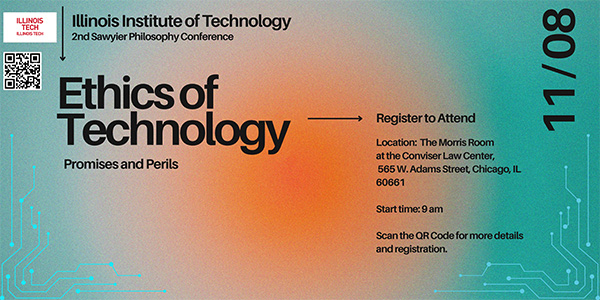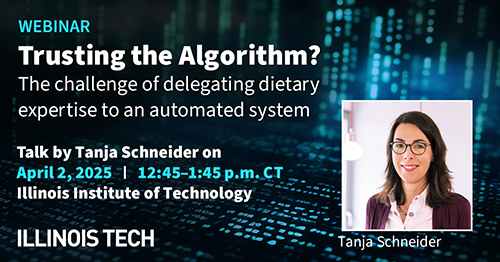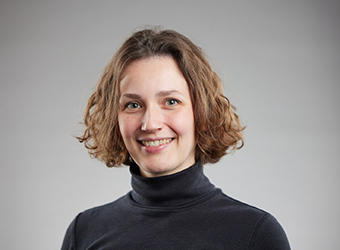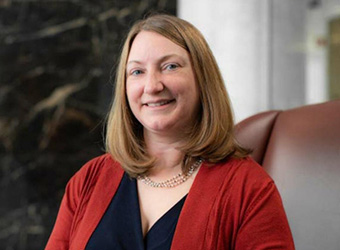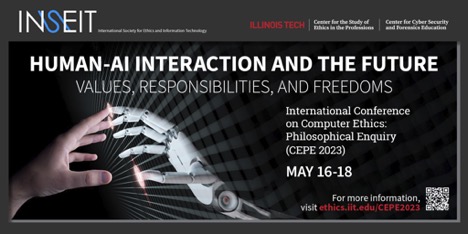As part of the Center for the Study of Ethics in the Profession’s mission to support research in practical and professional ethics, we sponsor many talks and events throughout the year in collaboration with other departments. Please be sure to sign up for our newsletter to learn about upcoming events and discussions of ethics-related news stories and resources.
You can also view past editions of our newsletter
2nd Sawyier Philosophy Conference on Ethics of Technology: Promises and Perils
The Center for the Study of Ethics in the Professions at Illinois Institute of Technology in Chicago is hosting a conference exploring philosophical, ethical, societal, and legal issues related to technology.
Please see the preliminary schedule of events for more information.
Participation and attendance for this event is free, but registration is required.
Trusting the algorithm? The challenge of delegating dietary expertise to an automated system
Presenter: Associate Professor Dr. Tanja Schneider
April 2, 2025, 12:45-1:45 CDT
Over the past decade, digital platforms and devices have become increasingly available and embedded into eaters’ everyday life, acting as non-human algorithmic agents that shape eating practices. This talk examines the development of one such algorithmic actor—a dietary monitoring and intervention app—based on my recent participation in an interdisciplinary research collaboration involving scholars from information studies, computer science, and science and technology studies (STS). The app, ‘FoodCoach’, was designed to inform consumers about their food shopping behavior by calculating and displaying a Nutri-Score for their weekly grocery purchases (based on donated digital receipt data) and recommending nutritionally healthier alternatives. On April 2, 2025, the Ethics Center at Illinois Tech hosted the webinar, "Trusting the algorithm? The challenge of delegating dietary expertise to an automated system" featuring Dr. Tanja Schneider of the Technical University of Denmark (DTU).
This talk explores how digital data and algorithmic systems trouble expertise and, in some cases, provoke contestation. Drawing on go-along interviews and focus group data from our study, I discuss participants’ skepticism toward delegating dietary expertise to an automated system. Many questioned the types of expertise embedded in the app’s development, raising concerns about the backgrounds and knowledge of its creators. While some participants valued the insights and recommendations provided, the majority problematized the app’s primary reliance on nutrient-based scoring, arguing that it overlooked other important forms of expertise, such as culinary knowledge. Furthermore, participants emphasized their own lived experiences and self-knowledge, asserting their role as the primary experts in managing bodily and dietary health.
Tanja Schneider is Head of the Human-Centered Innovation Section at the Technical University of Denmark (DTU) and Associate Professor of Science and Technology Studies (STS). She is also a Research Affiliate at the Institute for Science, Innovation & Society (InSIS) in the Department of Anthropology at the University of Oxford. Tanja’s research is situated at the intersection of STS and economic sociology/market studies. Her primary research interest centers on how agency, accountability and autonomy are reconfigured in a digital society. Her research spans topics as diverse as the neuro-turn in the social sciences and humanities, digital activism, market-making and valuation practices, sustainable food consumption, digital health, and FoodTech and the financialization of innovation.
Webinar: Harnessing Z- Inspection®️ for Trustworthiness of Generative AI
March 10, 2025, 12:45-1:45 p.m.
Presenter: Dr. Jesmin Jahan Tithi
On March 10, 2025, the Ethics Center at Illinois Tech hosted the webinar “Harnessing Z- Inspection®️ for Trustworthiness of Generative AI” featuring Dr. Jesmin Jahan Tithi.
As generative AI (Gen-AI) continues to redefine the landscape of numerous industries, from drug discovery to creative arts, its integration into our socio-technical fabric necessitates a rigorous assessment of trustworthiness. Z-Inspection®️ emerges as a pivotal methodology, offering a comprehensive framework to assess the trustworthiness of AI systems across their lifecycle. This process is grounded in the European Union's High-Level Expert Group's (EU HLEG) guidelines for trustworthy AI, yet exhibits the flexibility to adapt to diverse regulatory environments.
This talk delves into the details of Z-Inspection®️ and its potential applications to Gen-AI. It explores how this holistic approach facilitates identifying and examining ethical dilemmas, leveraging socio-technical scenarios crafted by interdisciplinary experts attuned to the specific use case. The discussion extends to the ethical quandaries inherent in Gen-AI, including bias amplification, the generation of deceptive content, privacy erosion, opacity, human skill diminution, employment disruption, and environmental impact. The talk focuses on preemptive analysis and the proactive cultivation of mitigation strategies through Z-Inspection®️, aiming to balance Gen-AI's immense promise with the imperative of safeguarding ethical standards.
Biography:
Dr. Jesmin Jahan Tithi is an AI Research Scientist/Engineer at Intel Corporation, where she focuses on high-performance computing (HPC) and hardware-software codesign. She received her Ph.D. in Computer Science from Stony Brook University, New York, and her B.Sc. in Computer Science and Engineering from Bangladesh University of Engineering and Technology with Honors. She has also interned at Google, Intel, and the Pacific Northwest National Laboratory. Dr. Tithi is a leading expert in HPC and has made significant contributions to the field. She is the author of over 35 peer-reviewed publications and 13 approved patents, and her work has been featured in top academic conferences and journals. She is a founding member of Z-inspection and the head of education in North America, an assessment process for trustworthy and ethical AI.
Additional RCR Workshops
These workshops are required for students and faculty engaged in federally funded research to meet the in-person research integrity education requirements. Funding organizations such as the National Science Foundation and National Institutes of Health recently issued new training requirements to make sure that everybody is on the same page and conducts studies responsibly.
Responsible Research and Building an Ethical Culture
This collaborative session seeks to engage participants in a discussion of ethical issues that have come up in their own research. They will explore existing guidelines or best practices on how to resolve or better handle these issues. And participants will jointly develop draft guidelines for future researchers in navigating these ethical questions. This workshop fulfills the NIH/HSF requirements for in-person RCR training.
Webinar: “Sustainable AI: A Structural Turn”
Talk by Larissa Bolte on February 5, 2025 at the Illinois Institute of Technology, 12:45-1:45 p.m.
On February 5, 2025, the Ethics Center hosted a webinar featuring guest speaker Larissa Bolte of of Bonn University's Institute for Science and Ethics’s Sustainable AI Lab.
The topic of Sustainable AI has garnered more and more attention from researchers and the general public in the last few years. With this increased attention comes the realization that AI is not only a tool that can be leveraged for sustainability; there is also an environmental and social cost attached to AI, meaning there needs also be consideration of the sustainability of AI itself. The fact that Sustainable AI covers both benefits and harms puts it on the map for the philosophical discipline of ethics. This talk explores how Sustainable AI has been approached as an ethical issue. In particular, it distinguishes three distinct and consecutive approaches to AI ethics and argues that Sustainable AI forms part of the still emerging third one, a structural approach. Incidentally, this structural approach moves AI ethics, sometimes but not always, into the direction of a political philosophy.
Webinar: Ethical and Logistical Considerations in Implementing Decentralized Genomic Research Trials
Illinois Tech’s Center for the Study of Ethics in the Professions presents a webinar featuring guest speaker Michele L. McGowan, professor of biomedical ethics and co-director of the Biomedical Ethics Research Program at Mayo Clinic in Rochester, Minnesota. This webinar took place on Thursday, March 21 at 12:45 p.m.
There is considerable enthusiasm for moving clinical research outside of traditional research environments and promoting research participation among populations that have been historically less likely to contribute to population genetic research. While the COVID-19 pandemic accelerated opportunities for decentralizing clinical research, several ethical and logistical considerations remain. Drawing on her own experience of leading an adolescent genomic decision-making clinical trial with a virtual arm, Michele L. McGowan will illustrate opportunities and challenges to fully decentralizing genomic research and the continued relevance of calls for population-representative and equitable participation in genomic research.
Michelle L. McGowan is a professor of biomedical ethics and co-director of the Biomedical Ethics Research Program at Mayo Clinic in Rochester, Minnesota. She completed a B.A. in Sociology at Boston College, a Ph.D. in Women’s Studies at University of Washington, and a postdoctoral fellowship in bioethics at Case Western Reserve University. Prior to joining Mayo Clinic in 2022, McGowan held faculty positions at Case Western Reserve University, Pennsylvania State University, and University of Cincinnati. McGowan is an empirical bioethicist whose research explores ethical and social implications of emerging health technologies and policies. Combining a range of qualitative and normative methods, her empirically informed approach to bioethics scholarship focuses on addressing the uneven distribution of benefits and burdens of associated with the uptake of technologies in healthcare and biomedical research. She is currently a principal investigator of a multiple-PI National Human Genome Research Institute-funded hybrid clinical trial focused on adolescent decision-making in relation to prospective genomic screening.
International Conference on Computer Ethics; Philosophical Inquiry 2023 (CEPE 2023)
In May 2023, the Center for the Study of Ethics in the Professions and the Center for Cyber Security and Forensics Education hosted the International Conference on Computer Ethics; Philosophical Inquiry 2023 (CEPE 2023). Over 150 scholars worldwide joined us for both an in-person and virtual conference. Presentations explored issues such as issues of trust and bias in artificial intelligence, innovative new ways of integrating ethics into computer ethics curricula, and issues around human-Ai interactions in the fields of medicine, the workplace, and daily life.
The Ethics Center was extremely pleased to award the first Vivian Weil Award for best paper to Tobias Flattery and Christian Miller of Wake Forest University for their conference paper " Deepfakes and Dishonesty."
Recordings of the virtual presentations are also available.
CEPE is a leading international conference that has played a significant role in defining the field and is held biennially. It was organized by INSEIT in collaboration with the Ionian University Research Team, IHRC (Information: History, Regulation, and Culture).
Machine Learning (ML) Fariness: A Webinar
On March 24 the Ethics Center sponsored a webinar featuring a conversation featuring guest speakers Lindsay Weinberg and Leilani Gilpin who shared their thoughts and approaches regarding the trends of machine learning fairness. Topics of discussion included how are dominant trends in artificial intelligence fairness research entrenching, rather than remedying, issues of bias and discrimination, and how explanations can be used for ensuring fairness and accountability. See a recording of the event.
Changing Perspectives on Human and Animal Experimentation
Dr. Anita Guerrinni joined us on October 12, 2022, for her talk titled "Changing Perspectives on Human and Animal Experimentation," during which she explored the history of the use of humans and animals in research ranging from William Harvey's research on the circulation of the blood in 1628 to the development of smallpox vaccine in 1798, to the development and production of polio vaccines in the 1950s. Dr. Guerrini focuses on both the benefits of these advances as well as many of the ethical questions raised in the use of animals and children in the development of these medical advances. See a recording of the event.
Climate Change and Ethics: Reflecting on Risk and its Implications
The webinar investigated the roles of climate change-related risks in the context of decision-making, policy, and law. It reflected on the role of the prudence principle for spending on climate security measures and discussed the life-threatening implications of pollution and climate change that result from human activity. See a recording of the event.
Climate Change & Ethics: The Role of Governments and Societal Actors in Mitigating Climate Change
The webinar will explore the roles and responsibilities of governments and societal actors in the context of climate change. It will analyze what hinders stakeholders from more effectively promoting climate change mitigation and adaptation and reflect on what can be done to improve the situation. Topics include the role of science and amateurs in climate change conversations, the influence of businesses on policymaking around climate change, the importance of concern for the environment, solidarity, ecological reforms, and public education for climate justice. See a recording of the event.
Climate Change & Ethics: Where are We?
A Virtual Symposium
In light of the slow progress being made to mitigate climate change, there is a need to reflect on the ethical considerations at play. How can ethics help structure the discussion and facilitate climate justice? This symposium seeks to engage stakeholders in discussing the ethical assumptions implicit in our discussions and actions around climate change. See a recording of the event.


